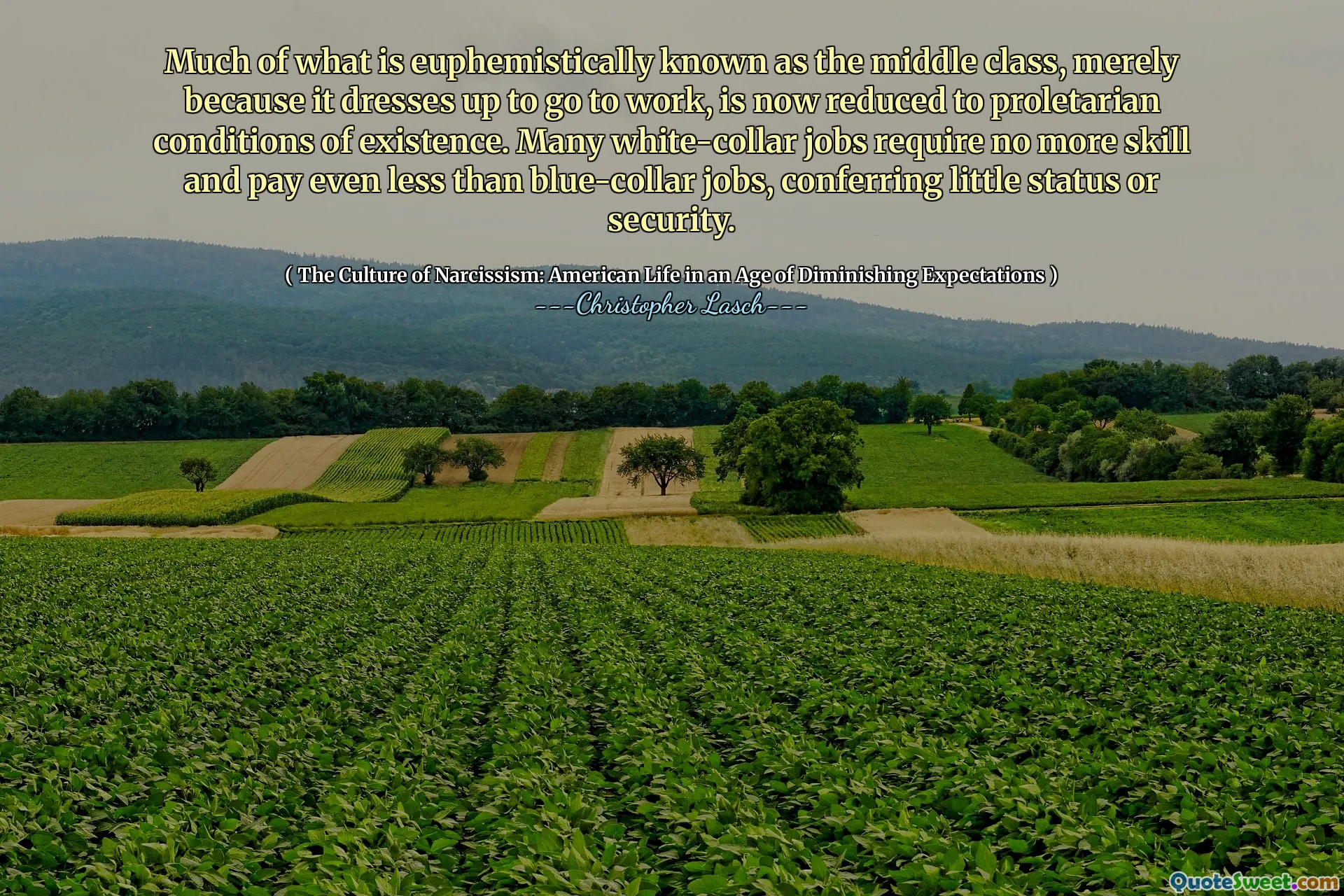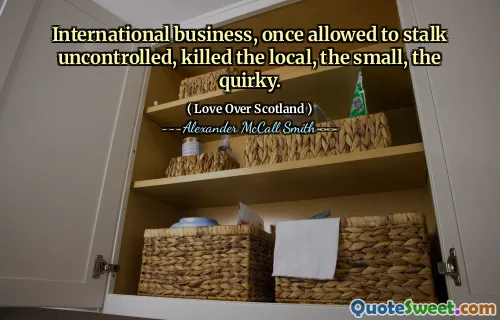
Much of what is euphemistically known as the middle class, merely because it dresses up to go to work, is now reduced to proletarian conditions of existence. Many white-collar jobs require no more skill and pay even less than blue-collar jobs, conferring little status or security.
This quote offers a critical perspective on the shifting dynamics of social and economic class structures. It challenges the conventional perception of the middle class as a stable, aspirational segment of society by exposing how many so-called middle-class jobs have become precarious and low-paying. The remark highlights a paradox: occupations traditionally associated with status and stability—white-collar roles—are increasingly resembling blue-collar jobs in terms of the skill requirements, compensation, and security offered. This trend reveals a deepening inequality and a weakening of the traditional economic distinctions that once defined social classes.
The fact that many white-collar jobs now demand little more than basic skills and provide minimal security strips these roles of the respect and status they once held, effectively reducing them to conditions comparable to manual labor. It also underscores how the label of 'middle class' can sometimes serve more as a social badge than an accurate reflection of economic reality. Such developments can lead to a sense of disillusionment and instability among those who believed their employment would shield them from the hardships faced by the working class.
Furthermore, these trends raise questions about societal values and priorities—whether skills, security, and well-being are being sacrificed for economic flexibility or corporate profits. The overall picture points to a shrinking buffer for the so-called middle class, whose members may feel more vulnerable than ever. This situation calls for critical reassessment of the socioeconomic policies and structures that maintain or threaten the stability of the middle class in modern economies.


